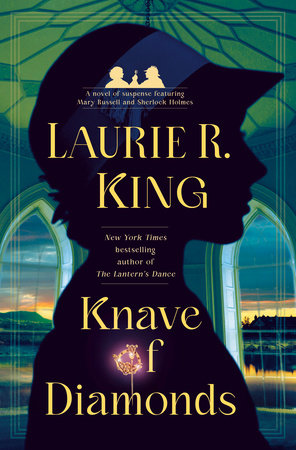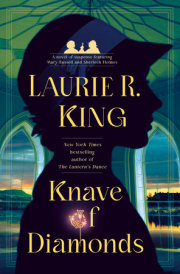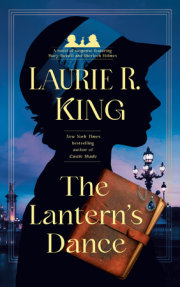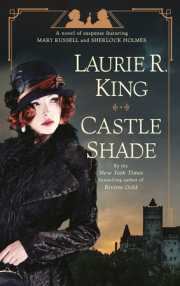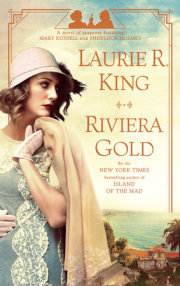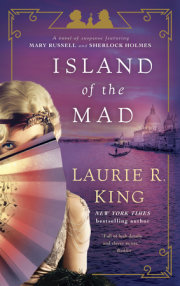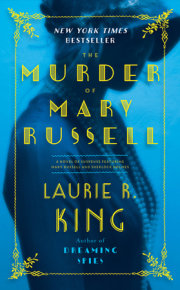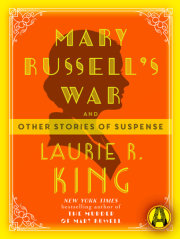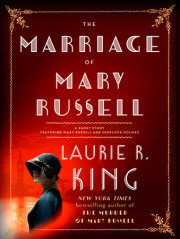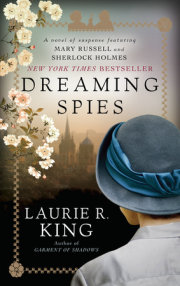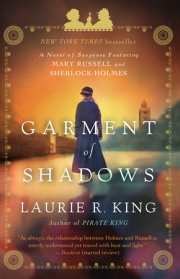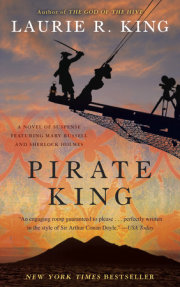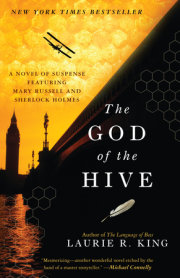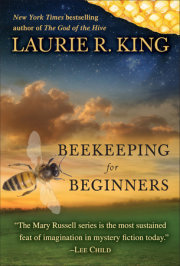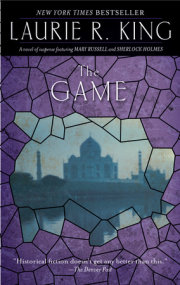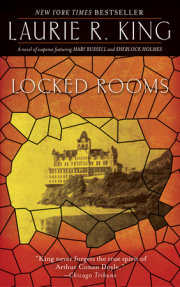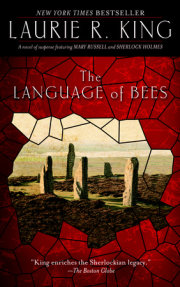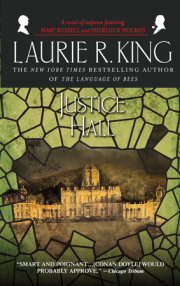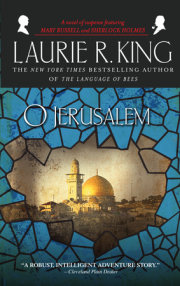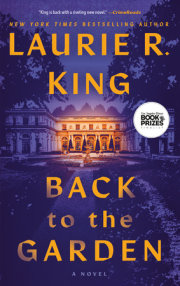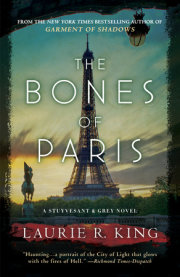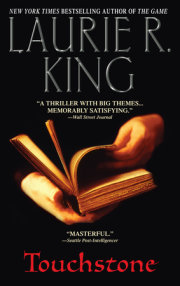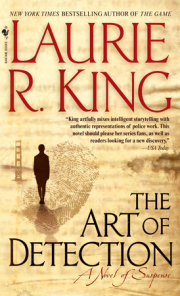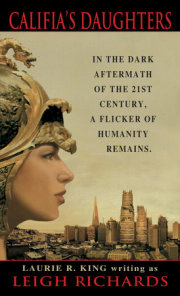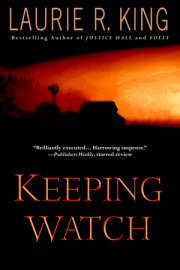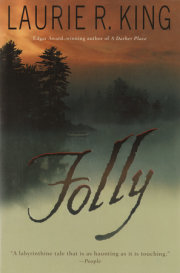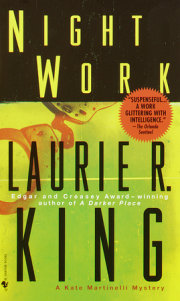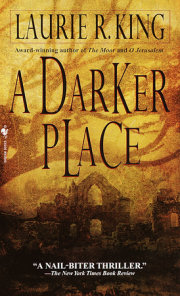Chapter OneRussellDamian’s wedding was proving something of a contrast to my own.
Holmes and I had wed by night, slipping like thieves into his family’s country-house chapel on a cold winter’s eve, holding our festivities with a few cherished friends while the house’s current master was away. Appropriate, perhaps, considering the participants, but hardly boisterous.
This nuptial was halfway to riotous, a gay, tipsy crowd beneath the genial sun of a late-summer’s afternoon, with half the artists of Paris and most of the village’s residents merrily jostling elbows and glasses. Francis Picabia and Gerald Murphy had cornered the village blacksmith and seemed to be discussing anvils. Sara Murphy was writing down the recipe for one of the dishes in Mme LaRue’s open-air banquet. Pablo Picasso’s intense eyes were drilling into the unfortunately damaged face of the village postmistress, making her giggle nervously. At the far end of the garden, a jazz band was setting up while two dark-skinned American women—one a Paris nightclub owner, the other a recently-arrived chorus girl—walked through some moves the dancer had brought with her from New York.
“Charming lass,” said a voice at my side.
I looked down at one of the bride’s brothers—Hugh, was it? No, this was the youngest, Gordon, his Scots accent barely discernible under the weight of English Public School. In a group, all four brothers tended to revert: last night, the sound from the sitting room had resembled a pack of badgers gargling.
“Gordon, I hope you’re enjoying your first trip to Paris?”
“Thank you,” he said. “Indeed.”
I looked more closely, wondering if he was too terrified to speak. Then I noticed that his eyes had not moved from the musical gathering at the end of the garden, and realised that he was not actually responding to my question, merely automatically flipping words in my direction.
“Would you like to meet them?” I asked. “The musicians and ladies?”
His face instantly turned the same colour as his hair, and badger-sounds came from his throat. I put down my glass and seized his wrist, steering him through the groups to where the two Americans were laughing with the jazz band.
I planted him there, made the key introductions, then faded away and went to claim another glass.
“Who is the girl?” asked a very different voice at my side, one whose Scots accent had become delightfully touched by French in recent months—tongue shifting forward in her mouth, her rolled R’s gone soft. Every so often, her gerunds included the G sound.
“Josephine something,” I replied. “A dancer just arrived from New York, came out to join a ‘revue nègre’ in the city. She seems very sweet.”
And lest young Gordon’s older sister feel that she should be protective, three more interested males had already drifted up the garden, including a couple of American writers: Scotty Fitzgerald (whom I had met that summer) and a friend of his named Hemingway. Under their barrage of masculinity, the boy’s innocent charm hadn’t a chance. I turned to her.
“You look magnificent, Aileen.”
She glanced down at the dress. “Nice, isn’t it? I couldn’t imagine how it was going to look until it came together. Though my mother may never forgive me for not wearing the family lace.”
The gown was, literally, a work of art, a collaboration by the new husband’s colleagues and friends, panels of brocade and silks in a dozen varieties of cream embroidered over with flowered vines. I’d never seen anything like it, and even on a woman nearly a foot shorter than I, it was breath-taking.
“I’m sorry she couldn’t make it over.”
“It’s a long voyage for her, and in any event, we’ll be there in no time.”
The three Adlers were headed over to Scotland for a grandmother’s 90th birthday in early December. But not, apparently, for Christmas. A Henning family Christmas, the doctor had confided in us, was too much to demand of a new husband. It would be at least a year before she presented him with a kilt and inflicted him with a Henning familial assault by bagpipe.
“I’m glad all your brothers could come,” I told her.
She laughed. “I’m grateful Damian gets on with them. It must be quite a shock, for a man with nothing but a father—and the father’s wife, of course.”
“Don’t forget the uncle who never leaves London,” I added. Holmes’ brother, Mycroft, had predictably sent his regrets, and said that he looked forward to seeing the Adlers when they came to London for Boxing Day. His absence was probably just as well, considering the number of Topics Requiring Discussion that I was piling around his feet, like firewood at the base of a large stake.
“Do you have family, Mary? I mean to say, Damian told me that your parents and brother had died, but he didn’t know beyond that.”
“I am remarkably unburdened by relatives,” I said, trying to sound matter-of-fact and probably failing. “A few on my mother’s side, none of whom I get on with. My father’s parents are still alive, but they never approved of my mother—or me, really. I cut those ties when I rather dramatically left them a note and sailed off to England on my own at the age of fifteen.”
I’d walked away from my grandparents’ mansion with little more than a valise of clothes and a couple of books that I’d purchased myself: no mementos, no reminders of the life I was leaving behind. In the following years, I had built myself a new family, beginning with Holmes and Mrs Hudson, and now including Damian and his wife and child—and, I supposed, that very old woman who had appeared at the edge of the wedding ceremony before vanishing again. I was happy . . . but I did occasionally wish I felt more of an ancestral foundation beneath my feet.
“Your father was an only child?”
“Pardon? Oh, no, he had a brother. Younger.”
Aileen was studying my face. “You knew him.”
“Not as well as I’d have liked. He was . . .” I smiled. “Jake was a rogue and a ne’er-do-well, who was disowned by my grandparents when I was seven or eight. He used to send my brother and me the most peculiar and inappropriate gifts from all corners of the globe—a kit of explosive chemicals, a Maasai spear, the throwing knife I often wear. Whenever he appeared, adventures were sure to follow. Sometimes he came to escape trouble. Other times, he’d leave for the same reason. My brother and I adored him. My mother called him ‘The Knave,’ and treated him like a beloved pet that kept chewing on the furniture. My father shook his head a lot. He was the responsible one in the family.”
“What happened to your uncle?”
“He just . . . disappeared.”
My last sight of Uncle Jake had been the Christmas when I was eleven, a visit that began with Mother opening the door to a familiar figure—then taking a sharp step back when he’d thumbed up his hat-brim to reveal a spectacular black eye—and ended with a clever bit of criminality that involved two innocent minors.
The last time I’d heard from him was a brief letter that reached me on November 10, 1914. The War in Europe was raw and new, as was my own loss—father, mother, brother, all gone in an instant. I was in hospital when Jake’s well-travelled letter arrived, containing two playing cards that were a reference to our shared past. My heart has been ripped from its chest, his note said, and I did not doubt it. He loved my parents and my little brother. He said he would come, if I needed him. I did need him—I was all alone, in pain, wracked by guilt and desperate for a familiar face—but at fourteen, I was old enough to read between the lines: his hesitation most likely meant there was a warrant out for his arrest, for some crime or another. So, I did not ask him to come. I never had asked, though I’d thought about it scores of times over the years, mostly after glimpsing a familiar-looking head of hair across a crowd. He was sure to be dead, or in prison. But so long as I did not reach out to him—so long as I did not put a notice into the Times agony column and wait for him to see it in some distant corner of the globe—I could believe him alive, and happy, and getting up to the same criminal mischief that had seen him banished from family conversation.
“I’m sorry,” Aileen said.
I pulled my thoughts away from darkness. Don’t spoil her day, I told myself, and summoned a laugh. “Whatever my Uncle Jake did, and wherever he died, I have no doubt that he lived life to the hilt the entire time. That’s nothing to be sorry about.”
She smiled, and lifted her near-empty glass. “To all the black sheep we have known and loved.”
Including, I thought but did not say, her newly-wedded husband. I raised my glass, and drank with her.
Copyright © 2025 by Laurie R. King. All rights reserved. No part of this excerpt may be reproduced or reprinted without permission in writing from the publisher.

